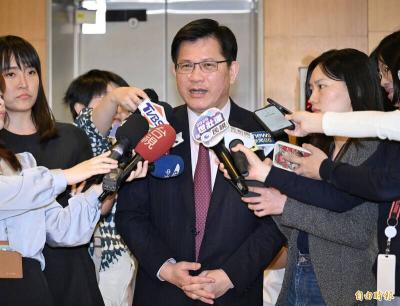The Straits Exchange Foundation and China’s Association for Relations Across the Taiwan Strait should launch talks over an economic cooperation framework agreement (ECFA) as soon as possible to create a “cross-strait win-win” situation, a statement released by the Chung-Hua Institution for Economic Research (CIER) said yesterday.
CIER and China’s Chinese Academy of International Trade and Economic Cooperation worked together last November to study the effects of the planned trade agreement on the two economies.
CIER said its study showed that although the economic pact may have both positive and negative impacts on different industries, overall, it would boost Taiwan’s GDP and lift the macroeconomy.
The Chinese academy’s research also arrived at the same findings, that “the development of Chinese industries may benefit or be adversely impacted by the agreement depending on their competitiveness,” the CIER statement said.
Since businesses on both sides of the Strait may have to undergo internal adjustments in the face of increased competition from imports in the process of market liberalization, CIER said the government should adopt a gradual or flexible method in deregulating the market.
Aside from the ECFA, the Taiwanese and Chinese research institutions recommended that the two sides establish timely trade regulations on the origin of products, the definition of service suppliers, trade remedy terms and a dispute settlement mechanism, the statement said.

Taiwan would welcome the return of Honduras as a diplomatic ally if its next president decides to make such a move, Minister of Foreign Affairs Lin Chia-lung (林佳龍) said yesterday. “Of course, we would welcome Honduras if they want to restore diplomatic ties with Taiwan after their elections,” Lin said at a meeting of the legislature’s Foreign Affairs and National Defense Committee, when asked to comment on statements made by two of the three Honduran presidential candidates during the presidential campaign in the Central American country. Taiwan is paying close attention to the region as a whole in the wake of a

Chinese Nationalist Party (KMT) Chairman Eric Chu (朱立倫), spokeswoman Yang Chih-yu (楊智伃) and Legislator Hsieh Lung-chieh (謝龍介) would be summoned by police for questioning for leading an illegal assembly on Thursday evening last week, Minister of the Interior Liu Shyh-fang (劉世芳) said today. The three KMT officials led an assembly outside the Taipei City Prosecutors’ Office, a restricted area where public assembly is not allowed, protesting the questioning of several KMT staff and searches of KMT headquarters and offices in a recall petition forgery case. Chu, Yang and Hsieh are all suspected of contravening the Assembly and Parade Act (集會遊行法) by holding

President William Lai (賴清德) has appointed former vice president Chen Chien-jen (陳建仁) to attend the late Pope Francis’ funeral at the Vatican City on Saturday on his behalf, the Ministry of Foreign Affairs said today. The Holy See announced Francis’ funeral would take place on Saturday at 10am in St Peter’s Square. The ministry expressed condolences over Francis’ passing and said that Chen would represent Taiwan at the funeral and offer condolences in person. Taiwan and the Vatican have a long-standing and close diplomatic relationship, the ministry said. Both sides agreed to have Chen represent Taiwan at the funeral, given his Catholic identity and

Taiwan would welcome the return of Honduras as a diplomatic ally if the next president of that country decides to make such a move, Minister of Foreign Affairs Lin Chia-lung (林佳龍) said today. “We would welcome Honduras if they want to restore diplomatic ties with Taiwan after their elections,” Lin said during a legislative hearing. At the same time, Taiwan is paying close attention to the Central American region as a whole, in the wake of a visit there earlier this year by US Secretary of State Marco Rubio, Lin said. Rubio visited Panama, El Salvador, Costa Rica and Guatemala, during which he